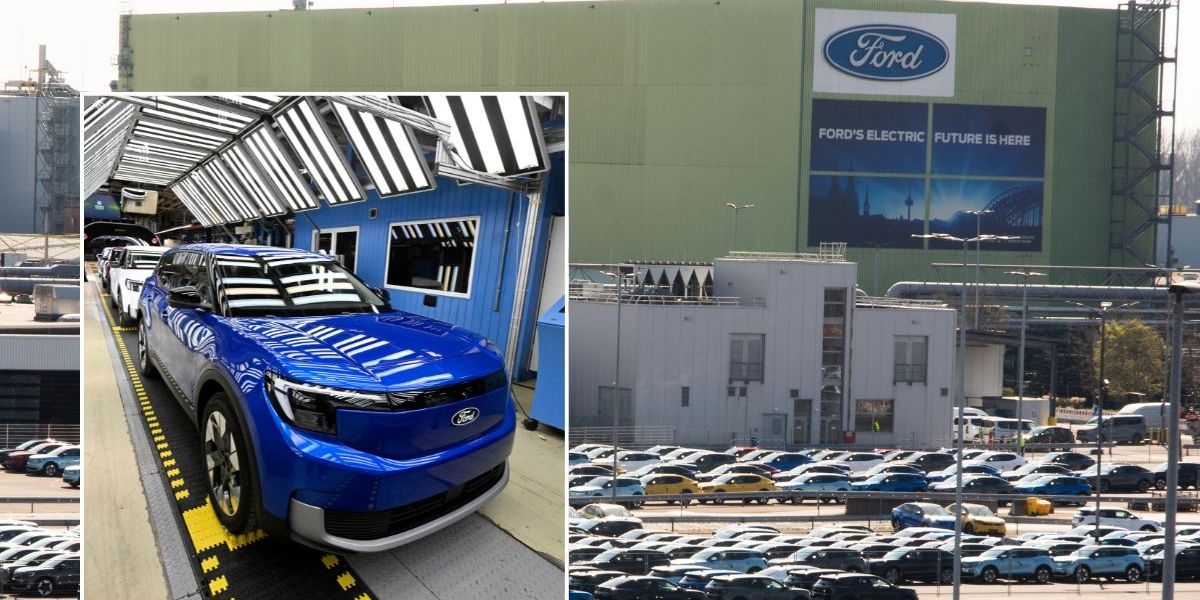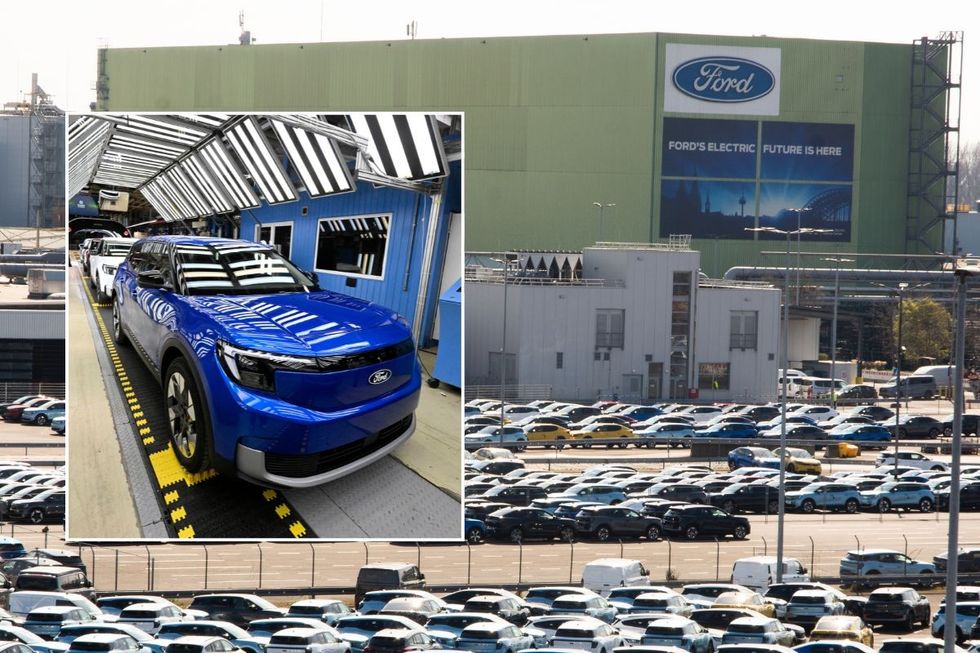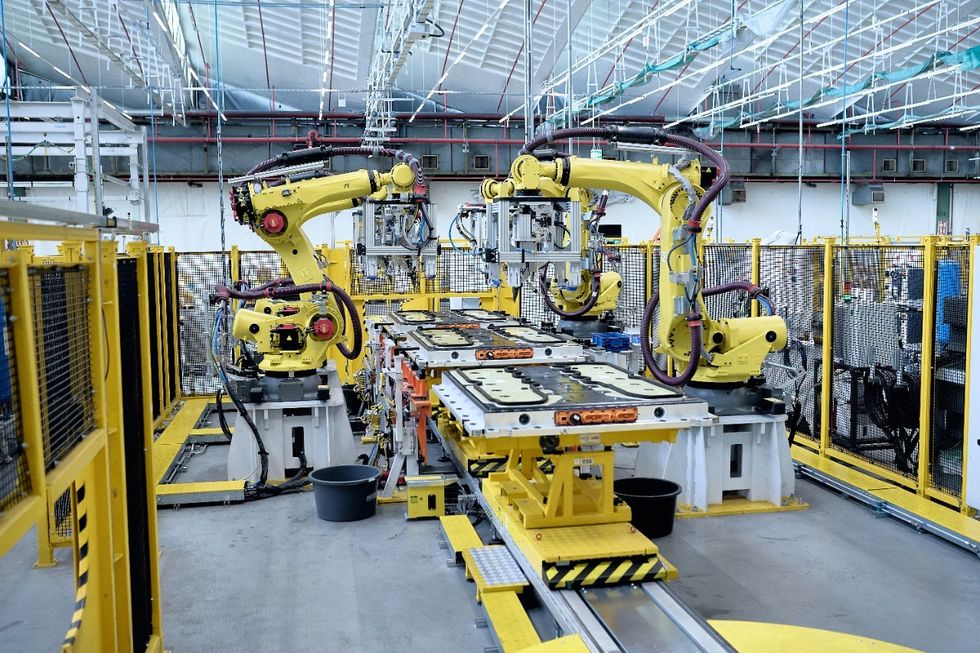



One of the largest automakers in the world has announced it will be cutting 1,000 jobs from its workforce as a result of waning electric vehicle sales.
Ford said it would be slashing up to 1,000 jobs in its electric vehicle division at its Cologne factory, which currently has around 4,090 employees.
In a statement, Ford said demand for electric vehicles remains "well below industry forecasts" in Europe, noting that jobs would be cut.
It added: "Ford will therefore switch production at the Cologne plant to single-shift operation from January 2026."

Ford blamed a lack of interest in electric vehicles as a reason for the decision to cut 1,000 jobs
|GETTY
Ford will offer voluntary redundancy packages to workers affected by the decision to change shift patterns at the Cologne plant.
The Cologne site was first opened in 1931, currently produces the Explorer and Capri electric vehicles for the Blue Oval, and is one of five factories that Ford operates in Germany.
The manufacturer announced last November that it would be cutting 4,000 jobs across Europe as part of a major restructuring project, including the loss of 800 jobs in the UK over the next three years.
Speaking at the time, Lisa Brankin, managing director of Ford of Britain and Ireland, said it was "not the news anyone wants to hear at any time".

Ford said it would be cutting 4,000 jobs across Europe in a bid to cut costs
|FORD
She added: "Making this announcement isn’t something that anybody wants to do, and I appreciate it will have a very significant impact on our employees."
Ford's plant in Saarlouis, Germany, is also set to close later this year following cost-cutting measures. It was announced in 2023 that an investor had been found to take over the factory, but this fell through.
It stated that it was sticking to its goal of creating 1,000 jobs at the Saarlouis plant, with hopes the site could "serve as the foundation for a future technology centre".
Reports suggest that a number of interested parties could take over the Saarlouis plant, including Chinese giant BYD, as it plans to accelerate its international expansion.
In its Q2 earnings report, Ford recorded a net loss of $36million (£26.3million), which related to the cancellation of an electric vehicle programme.
The Ford Model e programme reported a second-quarter loss of $1.3billion (£952million) before interest and taxes, a $179million (£131million) higher loss than the same quarter a year ago.
This was put down to changing tariffs, strategic investments in next-generation electric vehicles and expenses related to a new battery plant in Marshall, Michigan.
Despite this, Ford recently announced a plan to invest $5billion (£3.6billion) in the United States to develop its electric vehicle offering, in what it described as its "Model T" moment.

Ford already sells a number of popular electric cars, including the Puma Gen-E
| FORDAs part of the funding, Ford would create or secure almost 4,000 jobs across the US and roll out a new range of affordable vehicles, including a "breakthrough" $30,000 (£21,987) four-door electric pickup, which is expected to be released in 2027.
Ford promised the new electric pick-up truck to be as fast as its flagship Mustang EcoBoost, and contain more passenger space than the latest Toyota RAV4.
CEO Jim Farley said: "We took a radical approach to a very hard challenge: Create affordable vehicles that delight customers in every way that matters – design, innovation, flexibility, space, driving pleasure, and cost of ownership – and do it with American workers.
"We have all lived through far too many 'good college tries' by Detroit automakers to make affordable vehicles that ends up with idled plants, layoffs and uncertainty. So, this had to be a strong, sustainable and profitable business. From Day 1, we knew there was no incremental path to success."
